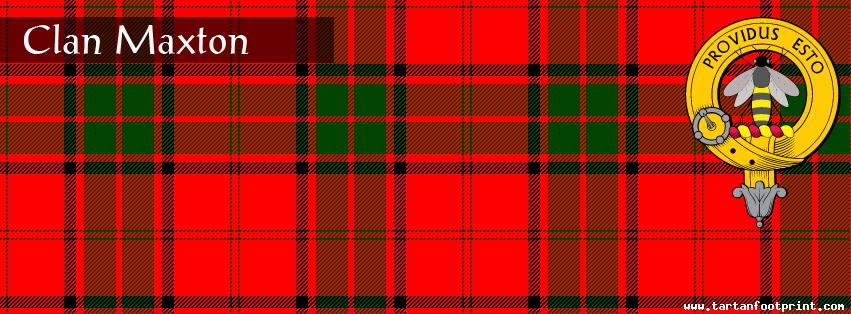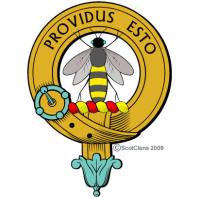
Clan Maxton
The name Maxton is a territorial one, taken from the Barony of Maxton in Roxburghshire. The name means, roughly, "settlement (tun) of Maccus", and it is suggested that the name came from Maccus, who was the son of Undewyn, who mananaged to obtain the lands during the reign of David I, sometime around 1153.
However, the lands were lost by the end of the twelfth century, moving into the possession of Robert de Berkley, and then later on the de Normanvilles.
A charter by John de Normanville was witnessed by Adam de Makuston around 1250, and about the same time, Philip de Mackuston's son, John, quitclaimed to the monks of Melrose the right of pasture in his lands. In 1261, Adam de Maxton was chosen to be the Abbot of Melrose.
Alexander de Maxston, who, in 1285, was constable of Rokisburg, is probably the same person who signed his allegiance to England's Edward I in 1296 along a number of other Scottish nobles.
The Hungarian name of Maxon descends from this one, after one settled over there several generations ago.
The lands of Cultoquey, in Perthshire, were received by Robert de Maxton in or around 1410, and the family have occupied the area ever since. Around 1725, the family of Maxtons celebrated having had the land for such a lenght by one of the family members composing a litany for the clan. It is a slight tongue-in-cheek attack at some of their powerful neighbouring clans, embodying their popular characteristics:
"From the greed of the Campbells,
From the ire of the Drummonds,
From the pride of the Grahams,
From the wind of the Murrays,
Good Lord, deliver us."




